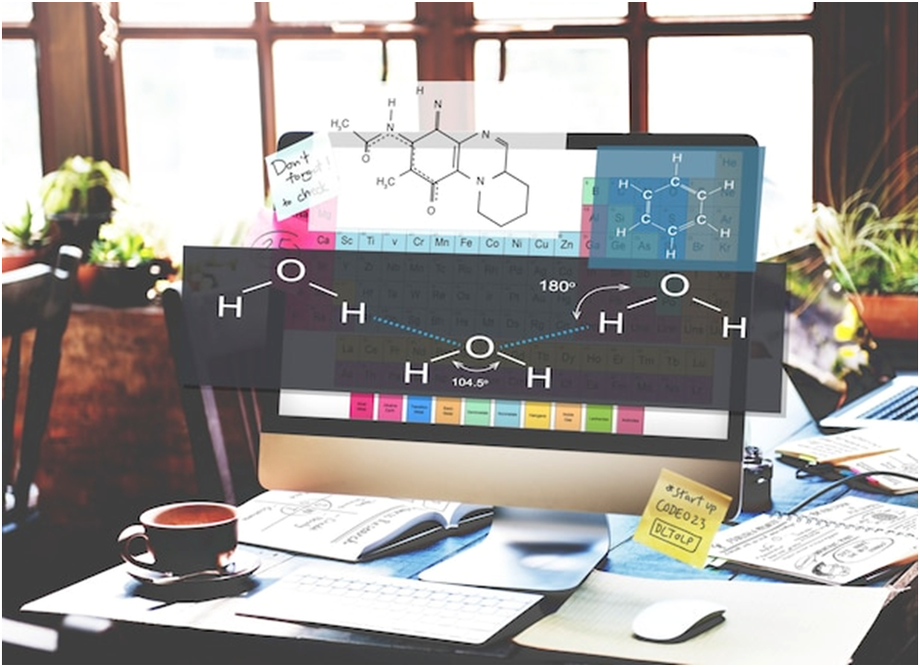Polymerize: Revolutionizing Material Innovation with Materials Informatics
Body
Materials Informatics: A Game-Changing Technology
Imagine a world where the complex, time-consuming process of material development is transformed by the power of data and artificial intelligence. Materials science, the study of chemical and microstructural properties and their correlation with functional performance, has long faced challenges in creating performance-specific blends and composites. Traditional experimentation is slow, costly, and labor-intensive. Enter Materials Informatics, a disruptive technology that merges material science with data informatics to accelerate innovation and product development.
Materials Informatics breaks down the barriers of performance prediction and reverse engineering in the unpredictable realm of materials science. By leveraging data-driven approaches, it empowers the chemical and polymer industries to design sustainable, consumer-specific materials with unprecedented efficiency.
Why Materials Informatics Matters
Materials Informatics is a one-stop solution for customizing materials to meet specific functional requirements. By combining domain expertise with advanced analytics, it optimizes composition and process parameters to deliver high-performance materials. This technology uncovers hidden trends and mathematical relationships between ingredients and performance attributes, enabling researchers to create cost-efficient, technologically viable products.
Key Applications of Materials Informatics:
- Matching Materials and Processes: Aligning material properties with manufacturing needs.
- High-Service Performance: Developing materials that excel in demanding applications.
- Enhanced Efficiency: Maximizing material performance with minimal resources.
- Environmental Performance: Designing eco-friendly materials.
- Modeling and Simulation: Predicting properties and failure modes.
- Functional Design: Creating materials tailored for specific purposes.
- Material Selection: Choosing materials that complement product designs.
- Sustainability: Promoting environmentally responsible material solutions.
Polymerize: Pioneering Faster Material Innovation
At Polymerize, we’re redefining material innovation by integrating machine learning with deep materials science expertise. Our Materials Informatics platform harnesses vast datasets from research, manufacturing, and customer requirements to streamline the development process, with a focus on polymers and organic compound synthesis.
Unlike traditional methods that rely on expensive, resource-heavy research infrastructure, Polymerize offers a cost-effective solution. Our platform combines two core components:
- Machine Learning and AI: For predictive analytics and optimization.
- Materials Science and Engineering: For domain-specific insights.
Together, these components drive sustainable, environmentally friendly growth in materials technology. By scaling and adapting the material development process, Polymerize empowers industries to innovate faster and smarter.
The ROI of Materials Informatics
The return on investment (ROI) for Materials Informatics is transformative. Traditional material development involves weeks or months of trial-and-error experimentation, requiring costly chemicals and skilled labor. In contrast, Polymerize’s AI-driven platform guides researchers to the most promising experiments in minutes, replacing guesswork with data-driven precision.
Benefits of Polymerize’s Platform:
- Lower Costs: Fewer experimental trials reduce initial investment.
- Time Savings: Rapid formulation slashes development timelines, unlocking profits sooner.
- Robust Processes: Optimized workflows improve efficiency and meet multiple objectives.
- Increased Value: Optimization drives product performance and uncovers new discoveries.
- Digital Assets: Codified experimental knowledge becomes a reusable resource for future innovation.
By testing AI-suggested formulations and feeding results back into the platform, Polymerize continuously improves model accuracy, delivering high-performance materials faster than ever before.
Will AI Replace Scientists?
The short answer is no. AI, as defined by pioneer Prof. John McCarthy, is “the science and engineering of making intelligent machines.” It mimics human cognitive functions like perception and problem-solving but doesn’t replace human expertise. Instead, AI acts as a catalyst, empowering scientists with precise data and insights to make informed decisions. This saves time, reduces costs, and amplifies the impact of human ingenuity.
Materials Informatics: The Future of Innovation
The demand for sustainable, energy-efficient materials is growing, but traditional development methods struggle to keep pace. Materials Informatics bridges this gap by combining domain knowledge with computational tools to accelerate innovation. From polymer composites to additive manufacturing, Polymerize’s AI/ML-enabled platform optimizes compositional and processing parameters, ensuring cost-effective, high-performance outcomes.
Our platform maps complex relationships between material composition and performance, enabling rapid predictability and parametric optimization. This makes it an essential tool for industries seeking to innovate sustainably and efficiently.
Digitalization and the Materials Industry
The materials industry is on the cusp of a digital revolution. While traditional R&D relies on expertise-driven experimentation, Polymerize’s Materials Informatics platform digitizes experimental data to unlock new possibilities. By training AI models with this data, we enable precise predictions of product composition and process optimization, accelerating the invention process.
Why Digitalization Matters:
- Future-Ready Materials: Digital datasets support the development of materials with advanced functional properties.
- Business Flexibility: Digitized data allows industries to pivot across sectors, leveraging valuable material insights.
- Scientific Insights: Data trend analysis and parametric heatmaps enhance domain knowledge and decision-making.
- Reverse Engineering: Achieve desired material combinations with fewer trials, making experimentation more logical.
By digitizing experimental datasets, Polymerize not only supports current projects but also creates a foundation for future innovation, helping industries stay ahead in a competitive landscape.
Join the Materials Revolution with Polymerize
Polymerize is leading the charge in transforming material innovation. Our Materials Informatics platform empowers industries to create sustainable, high-performance materials faster and more cost-effectively than ever before. By combining AI, machine learning, and materials science expertise, we’re paving the way for a future where innovation is smarter, greener, and more accessible.
Ready to accelerate your material development process? Discover how Polymerize can help you innovate with purpose and precision.







Comments